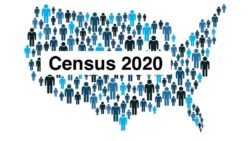 The federal government is finding it more difficult than usual to get people to complete the 2020 Census. The headline on Politico Magazine’s recent article about the once-every-decade constitutional exercise — “A Brush with Catastrophe: Inside the 2020 Census Meltdown” — suggests the scale of the problem.
The federal government is finding it more difficult than usual to get people to complete the 2020 Census. The headline on Politico Magazine’s recent article about the once-every-decade constitutional exercise — “A Brush with Catastrophe: Inside the 2020 Census Meltdown” — suggests the scale of the problem.
The meltdown is due, in part, to the pandemic and the Trump Administration’s aggressive maneuvers to obstruct the count. But another significant driver has been the Census Bureau’s incomprehensible decision to force most Americans to respond to the survey via the internet.
According to the advocacy group Keep Me Posted, 74 percent of U.S. households that responded to the survey in 2010 did so by mail. For this year’s count, however, the Census Bureau estimated that 78.2 percent of households would respond online instead. So they made a costly and irrational leap of faith and decided to actively prevent citizens from using paper and pen to record their response.
Here’s how Keep Me Posted describes it:
(N)early 8 in 10 residential addresses were not sent a paper form to complete at the launch of Census 2020 — which could have easily included directions for other options to reply. Instead, they were mailed “invitations to participate” online (or phone) — in envelopes identical in size and external message as those sent to the 21.8% who received a physical form to fill out. And then, when most of them failed to go online (or call), they were mailed reminder after reminder — to go online.
Only after the fourth or fifth mailing, depending on local delivery, did the forced-digital group finally get a paper Census. But for whatever reason, the envelope was identical to the previous mailings with with no external wording to announce that there was finally a physical survey inside, making it easier to again dismiss by those weary of the web.
How does a federal agency make such a mind-bogglingly stupid decision? Well, we have a few ideas.
The Census Bureau is based in Suitland, Md., in the Washington, D.C. area. It is led by upper-income professionals who are on the internet all day and assume everyone else is as well. In their world, the idea that significant numbers of senior citizens and low-income households do not have internet access, or that others have jobs that don’t require them to sit in front of a computer screen all day, is a foreign concept. It simply doesn’t occur to them that print still has its uses even for those of us who have broadband internet access.
It’s the same mindset that led public officials to rush into moving our election infrastructure online, and has left them unwilling or incapable of reverting to paper ballots even though the vulnerability of electronic voting systems has steadily eroded the American public’s confidence in our electoral process.
[U.S. Senator: “Paper is not antiquated. It’s reliable.”]
It’s also the unexamined attitude of government employees who scoff at the suggestion that public notice still belongs in newspapers.
What will it take for public officials to understand that print is preferable to digital for certain functions? That information in a newspaper has more permanence and is more easily discoverable than it would be on a webpage? That information posted on the internet gets lost and doesn’t leave the kind of impression that stamps itself in memory like print?
Hopefully they wake up before undermining the sanctity of our elections or destroying a public notice system that has helped to enhance government transparency since the founding of the republic.
